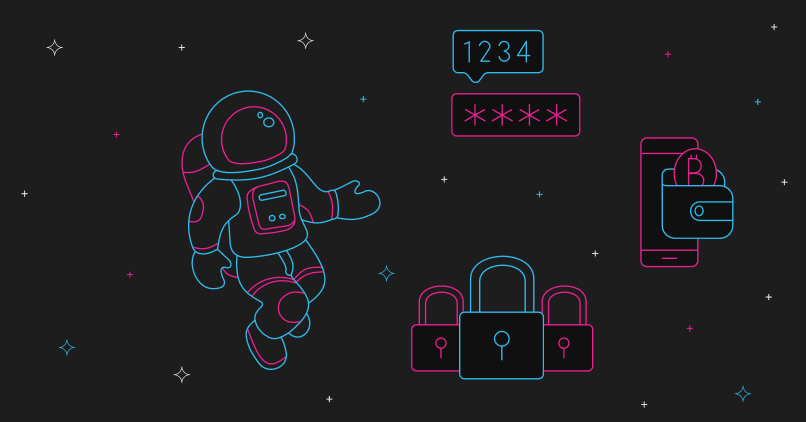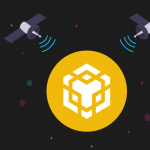Summarize with AI
When it comes to your cryptocurrency, you can’t afford to take any chances with security. However, you can take several steps to improve your portfolio’s security. One of the most important steps is understanding the difference between Custodial and Non-Custodial services. This article will tell the differences between Custodial and Non-Custodial and explain why you should use non-custodial services when possible.

What is Custody?
Custody means having control over something. In the world of cryptocurrencies, it relates to control over your private keys.
A private key is like a password; it’s a series of letters and numbers that gives you access to your crypto funds.
Let’s imagine custodial keys in a scenario where someone might not trust themselves with their keys, such as an older person who’s very forgetful. In this instance, they might leave their keys with a relative or friend, thus, giving away custody of their keys.

Custodial Services
In crypto – much like in real life – having custody over your keys gives your more control of your possessions. Thus, giving up custody reduces control. Not your keys – not your crypto!
There are two services in the crypto game that use custodial private keys: wallets and exchanges.
We’re going to get into detail about both services, but we’ll start by covering Custodial wallets and then move on to exchanges.

Custodial Wallet
When you use a custodial wallet to hold your crypto, you don’t have custody of your private keys. Instead, the third party that runs the wallet holds your keys on their server.
For example, if you buy cryptocurrency on Binance and leave the crypto in your Binance wallet, Binance holds the private keys that unlock the wallet on its server.
Custodial Exchange
When you purchase crypto on a custodial exchange, the transactions are not written onto the blockchain. Instead, transfers are carried out between balances of accounts held by users in the exchange’s own wallet.
The balances of users are all linked to the exchange’s wallet. Naturally, the owner of the service holds onto the private keys that unlock the wallet.
As a customer on one of these exchanges, you essentially don’t own any crypto. Here, you simply have an agreement with the exchange stating they will hold some crypto for you in their wallet.
Now that we’ve discussed what custodial services are, let’s dive into their pros and cons.

Pros and Cons of Custodial Accounts
Although we are constantly told not to give our passwords (or house keys) to strangers, custodial accounts have some advantages.
Custodial: Pros
- Forgetful: If you’re forgetful or if you’re likely to write your private key down on a piece of paper and then lose it – custody might be a good idea.
- Accessibility: You don’t need to enter your private key to access your funds – all you need is an internet connection.
As you can see, the list of pros that comes with custodial systems is extremely short and not very appealing. Let’s check out the cons.

Custodial: Cons
- Control: You give up control of your funds by handing over your private keys to a third party. As a result, the platform can freeze or seize your funds.
- Safety: Centralized companies run custodial exchanges and wallets which make their systems vulnerable to hackers who could get hold of your private keys and vanish with your crypto.
- Online: You can’t access a custodial wallet without an internet connection.
- KYC: To access a custodial system you’ll have to enter know-your-customer (KYC) details which undermines the anonymity that many crypto enthusiasts highly value.
While using a custodial wallet or exchange might seem tempting simply because it’s ‘easier,’ the security and safety issues mean that you should consider using a non-custodial wallet instead.
![]()
Non-Custody: What Is It?
Non-Custodial wallets and exchanges don’t hold on to your private keys. So, when you use their services, you’re responsible for the key, and no one else will be able to access your funds if you keep your key safe.
Non-Custodial Wallet
With a non-custodial wallet, you have complete control over your private keys and, therefore, total control of your crypto holdings. You store your private keys yourself on your phone, computer, or other devices instead of the third party’s server.
Non-Custodial Exchange
A non-custodial exchange is a smart contract running on a specific blockchain; these exchanges don’t hold any of your funds. Transfers are made by connecting your crypto wallet directly to the smart contract and transfers are made between users directly without a third party.
Remember that a smart contract is an agreement on the blockchain that executes the moment pre-agreed criteria are fulfilled. These contracts are managed and run by code and don’t require a human to complete them.
Non-custodial exchanges, also known as DEX, are completely different to custodial ones like Coinbase and Binance.

DEX Crypto Exchange
Using a DEX is more complicated than custodial services like Binance and Coinbase, but they’re becoming increasingly popular in the crypto community. But if using a DEX is more difficult, why do people use them?
DEX appeals to crypto traders because they offer an alternative to the centralized exchanges that have so far dominated the market. A DEX doesn’t harvest your data, ask for KYC, and isn’t governed by a central authority.
Benefits of Non-Custodial Services
Keeping hold of your private keys comes with several benefits:
- Access: Only you can access your funds as a third party doesn’t hold your private keys.
- Instant: If a third party holds your private keys, it needs to approve them, every time you want to make a transfer. On the other hand, when using a non-custodial service, you’re in control of your funds.
- Secure: KYC arrangements mean that courts can order custodial services to freeze funds. Luckily, when you go non-custodial, there are no KYC requirements so your funds can’t be frozen.
- Hackers: Non-custodial services are decentralized which makes them more resistant to hackers than custodial exchanges and wallets.

As you can see, non-custodial services provide a layer of security and safety that you won’t get when using a custodial wallet or exchange. The hassle of looking after your private keys comes with so many benefits that it’s hard to justify using a custodial service. However, it’s important to note that using a secure VPN while accessing non-custodial services can enhance privacy and security as well. VPNs encrypt internet traffic and mask IP addresses, preventing potential hackers and cybercriminals from stealing private information.
If you’re looking to make safer more secure crypto trades, then check out the Swapzone non-custodial exchange service.
Swapzone Non-Custodial Exchange Service
Swapzone is a non-custodial cryptocurrency exchange aggregator that compares the best exchange rates, transaction speeds and reviews to find you the best exchange. You can swap dozens of cryptos using the site’s smooth interface which provides you with an estimated exchange rate before you commit to the swap.
Non-Custodial Exchange: How to exchange crypto custody-free?
The answer is simple – use Swapzone! Here’s the step-by-step guide:
- Open Swapzone in your browser.
- Choose the type of cryptocurrency and the amount you want to swap in the “Select a pair” section.
- Choose BTC (or any other crypto) from the “Get up to” column.
- Different platforms will offer you different BTC exchange rates, so filter the many trade offers based on price or transaction time.
- Simply select the offer you want and click “Exchange” once you’ve found it.
- After that, select “Proceed to exchange” and provide your wallet information.
- Wait for the transfer to complete.
- You will get the BTC coins in your wallet once the transaction completes.
- If you want, rate your experience and provide a candid evaluation.



